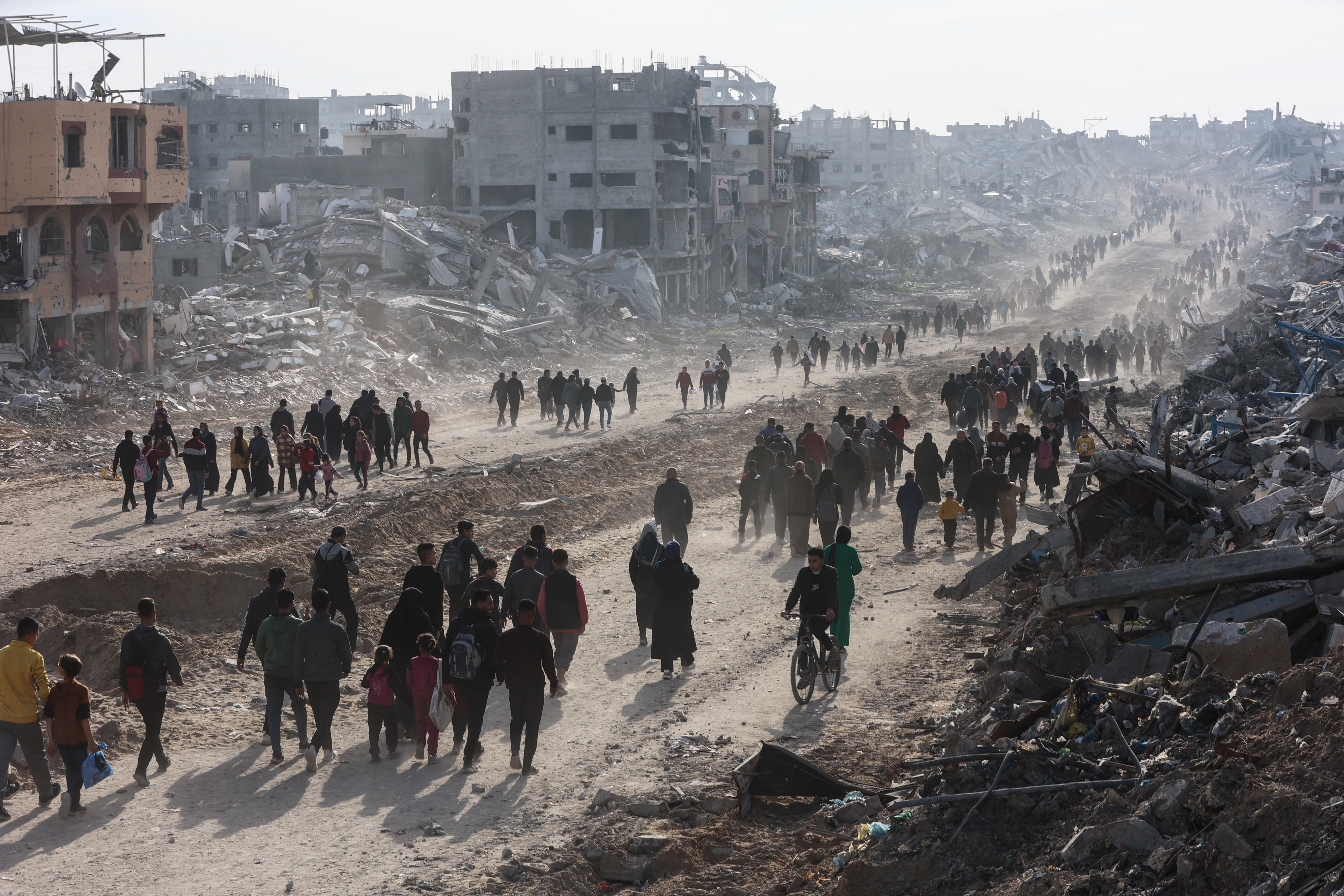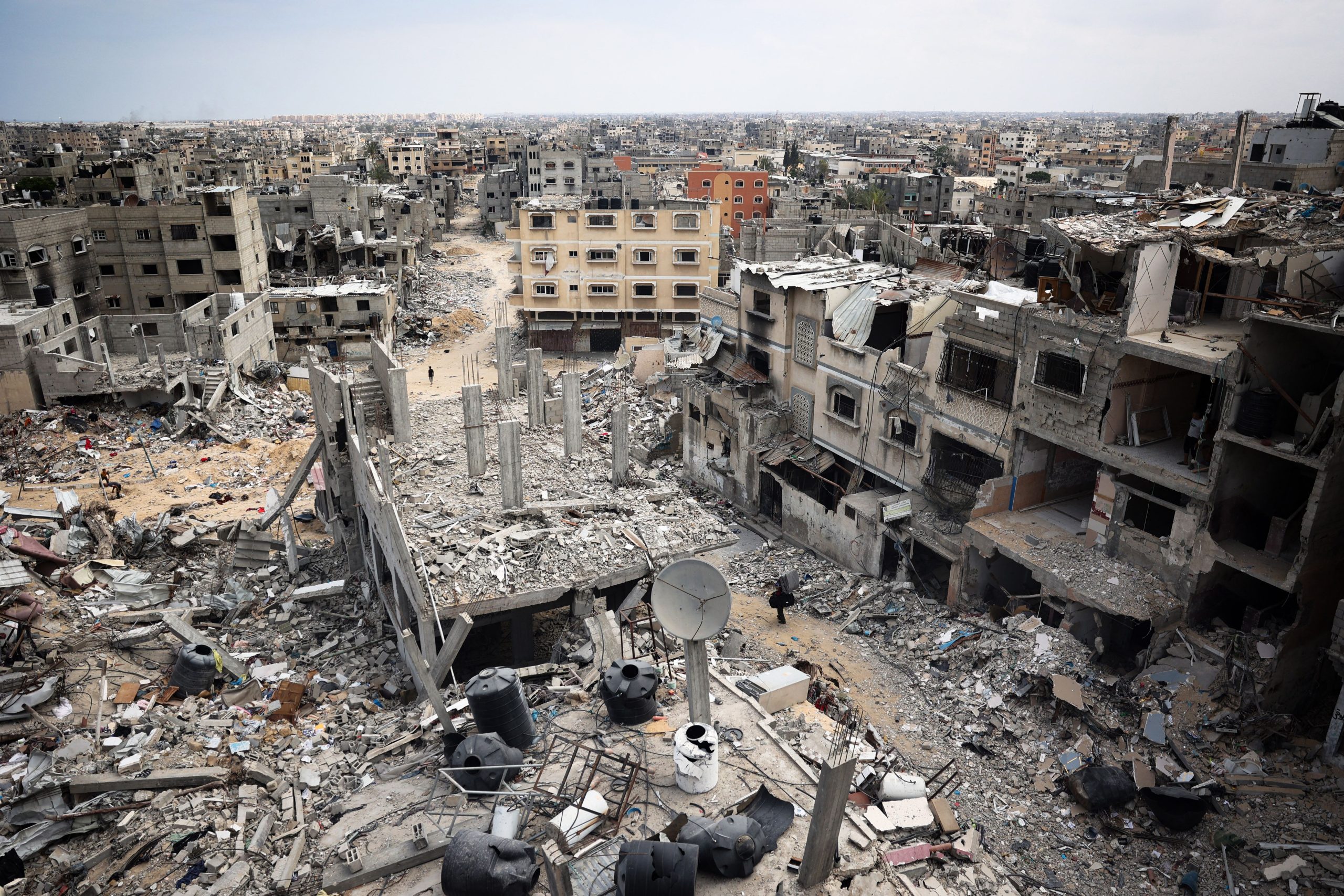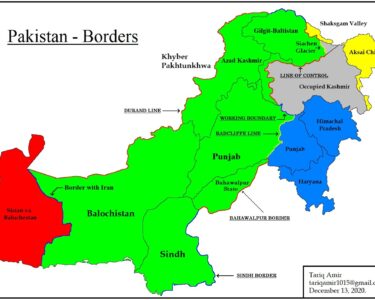Palestinian group tells mediators it approves latest Gaza ceasefire proposal and is ready to resume talks.
GAZA/CAIRO, Aug 18 (AfrikTimes) – Hamas has informed mediators that it has approved the latest Gaza ceasefire proposal and is ready to resume negotiations to discuss ending Israel’s war on Gaza, which has now killed more than 62,000 Palestinians and threatens further mass displacement amid manmade starvation.
“Hamas, along with the Palestinian factions, relayed their acceptance of the proposal put forward yesterday by the Qatari and Egyptian mediators,” the group said in a brief statement on Monday. The Times of Israel and Channel 12 reported that Israel has received Hamas’s response.
A source familiar with the talks told Al Jazeera the proposal included a 60-day cessation of military operations, during which Israeli forces would reposition to allow the entry of humanitarian aid. Half of the 50 Israeli captives would be exchanged for Palestinian prisoners within the same timeframe.
The source said the new proposal “marks the beginning of the path to a comprehensive solution”.
 A woman sits with a child with salvaged footwear amid debris and rubble at the site of Israeli bombardment on a residential block in Gaza City on January 14, 2025.
A woman sits with a child with salvaged footwear amid debris and rubble at the site of Israeli bombardment on a residential block in Gaza City on January 14, 2025.
The Hamas announcement came after Qatari Prime Minister and Foreign Minister Sheikh Mohammed bin Abdulrahman bin Jassim Al Thani held talks with Egyptian President Abdel Fattah el-Sisi in Cairo.
But judging by the failed trajectory of past negotiations, the announcement does not necessarily mean an end to the war is imminent.
Sticking points
Over the past two years, Hamas has accepted proposals for a ceasefire and the release of Israeli captives and Palestinian prisoners, only for Israel to reject them and insist on continuing the war. The major sticking point has been the duration of the ceasefire.
Hamas wants a permanent end to the war, but Israel has been seeking a temporary truce that would allow it to resume its destruction and displacement campaign in Gaza after its captives in the territory are released.
Israel, however, is pushing ahead with plans to seize Gaza City, bombarding the enclave’s once biggest and thriving urban centre as it plans to forcibly displace hundreds of thousands of Palestinians there.
Israeli Prime Minister Benjamin Netanyahu said he spoke with the defence minister and the chief of staff about plans for Gaza City “and the completion of our missions”. They concluded that “Hamas is under atomic pressure”, he said.
Defence Minister Israel Katz said Hamas was “willing to discuss a deal for the release of hostages only because of its fear that we seriously intend to conquer Gaza City.”
Far-right Finance Minister Bezalel Smotrich expressed opposition to any ceasefire agreement in Gaza.
“Hamas is under great pressure from the occupation of Gaza because it understands that this eliminates it and ends the story,” he said. “Therefore, it is trying to stop it by returning to a partial deal. Precisely for this reason, we must not give in and grant the enemy a lifeline.”
Al Jazeera’s Hamdah Salhout said Israeli officials have admitted to not having enough military combat soldiers for the operation. The army has issued repeated calls for conscription within Israel and abroad to raise its ranks.
“They said they are determined to move forward with the plan, but it’s unclear when and it’s unclear how,” Salhout said. “They say that [taking Gaza City] is going to be one of the strategic moves that the Israeli military does in order to achieve its strategic objectives.”
 Scores of displaced Palestinians walk along a road in the Saftawi area of Jabalia, as they leave areas near Gaza City where they had taken refuge, toward the further northern part of the Gaza Strip, shortly after a ceasefire deal in the war between Israel and the Palestinian resistance group Hamas was expected to be implemented on Jan 19, 2025.
Scores of displaced Palestinians walk along a road in the Saftawi area of Jabalia, as they leave areas near Gaza City where they had taken refuge, toward the further northern part of the Gaza Strip, shortly after a ceasefire deal in the war between Israel and the Palestinian resistance group Hamas was expected to be implemented on Jan 19, 2025.
Renewed Mediation
Mediators were expected to announce that an agreement has been reached and set a date for the resumption of talks. Efforts by Qatar and Egypt to rekindle negotiations have so far failed to secure a lasting ceasefire in the war.
A truce brokered by Qatari, Egyptian and US mediators that came into force in January was unilaterally broken by Israel in March. Since then, its blockade on aid supplies has caused famine and starvation. More than 260 Palestinians have died due to the Israeli-induced starvation crisis.
The latest round of indirect negotiations between Israel and Hamas, facilitated in Doha by mediators, lasted for several weeks before ending on July 25 without any results.
Egyptian Foreign Minister Badr Abdelatty, visiting the Rafah border crossing with Gaza on Monday, said Qatar’s prime minister was visiting “to consolidate our existing common efforts in order to apply maximum pressure on the two sides to reach a deal as soon as possible”.
Alluding to the dire humanitarian conditions for the more than two million people living in the Gaza Strip, where United Nations agencies and aid groups have warned of a humanitarian crisis, Abdelatty stressed the urgency of reaching an agreement. “The current situation on the ground is beyond imagination,” he said.
A statement by the Egyptian presidency on Monday said el-Sisi and Mohammed “affirmed their rejection of the reoccupation of the Gaza Strip and the displacement of Palestinians” and “stressed the importance of efforts to reach a ceasefire agreement”.
‘Genocides don’t end through negotiated solutions’
 A truck carrying aid drives, amid a ceasefire between Israel and Hamas, in Rafah in the southern Gaza Strip, February 16, 2025.
A truck carrying aid drives, amid a ceasefire between Israel and Hamas, in Rafah in the southern Gaza Strip, February 16, 2025.
Rights Concerns
Commenting on the Qatari prime minister’s trip to Egypt, Abdullah Al-Arian, an associate professor of history at Georgetown University in Qatar, said it was important to remember that similar negotiations have occurred before but it is “a lack of Israeli political will” that has ultimately stalled them.
Israel “has continued to pursue this genocide and taking it to new, horrific, unprecedented levels”, he told Al Jazeera, adding that there has been a lack of international pressure to secure a ceasefire.
“Historically, genocides don’t end through negotiated solutions. … They end usually because the party that committed the genocide is forced to end it, usually through external pressure, external intervention of some kind, and that has not happened yet,” the academic stressed.
On Monday, human rights group Amnesty International accused Israel of enacting a “deliberate policy” of starvation in Gaza as the UN and aid groups continued to warn of famine in the Palestinian enclave.
In a report quoting displaced Palestinians and medical staff who have treated malnourished children, Amnesty said: “Israel is carrying out a deliberate campaign of starvation in the occupied Gaza Strip.”
The United Nations and international aid agencies have repeatedly condemned Israel for blocking relief supplies from entering the enclave.
 Sheikh Mohammed bin Abdulrahman Al Thani, Qatar’s prime minister and foreign minister, led his country’s mediation efforts in the stop-start negotiations and acted as a key communicator with Hamas, as Israel and Hamas have not engaged directly.
Sheikh Mohammed bin Abdulrahman Al Thani, Qatar’s prime minister and foreign minister, led his country’s mediation efforts in the stop-start negotiations and acted as a key communicator with Hamas, as Israel and Hamas have not engaged directly.
Source: AfrikTimes and news agencies







